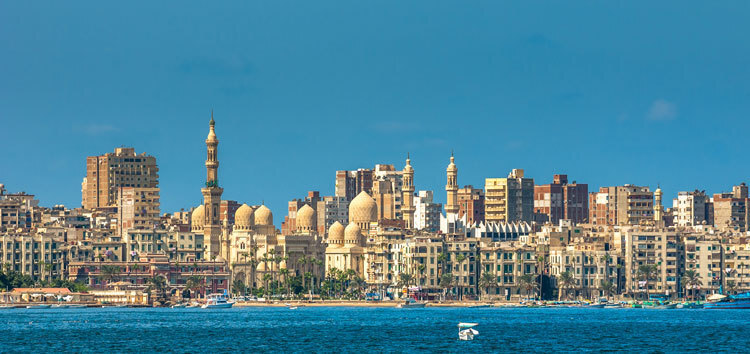
EU adopts new rules to significantly cut packaging waste with re-use targets
The European Union has formally adopted a regulation on packaging and packaging waste. The new ...

The European Bank for Reconstruction and Development (EBRD) is extending a €250 million loan to support the development of greener public transport.
The loan will finance the upgrade of an existing rail line between downtown Alexandria and the north-eastern town of Abou Qir to be the first high-capacity metro line in Alexandria.
Alexandria is a fast-growing industrial city, home to 5 million inhabitants and Egypt’s largest seaport, handling 75 percent of the country’s imports and exports. Consequently, it has significant need for green investment, including energy-efficient modes of transport.
The upgrade will improve the quality of public transport for Alexandria’s burgeoning population and improve the city’s air and noise levels. The electrification of the line will result in a modal shift from more polluting, road-based methods of transport to a sustainable, electric transport network. It will thus contribute to significant reductions in greenhouse gases (GHGs) and air pollutants.
The Alexandria metro project aligns with the Bank’s Green Economy Transition (GET) approach and reflects the efforts of the Egyptian government to shift to greener transport and transition to a green economy. It is also consistent with the EBRD’s country strategy for Egypt, which prioritizes the acceleration of the country’s green economy transition, in close cooperation with the Egyptian government and in line with its recently launched, ambitious reform program.
Under the EBRD Green Cities program, the Bank will extend a €250 million loan to co-finance the upgrade of the infrastructure and electrify an existing rail line, making it the first high-capacity metro line in Alexandria. The improvements will cover the requisite rail systems, including signaling, telecommunications and centralized controls, as well as the rolling stock for the new line.
The investment will support Egypt’s transition to an energy-efficient, low-carbon economy, decrease CO2 emissions and reduce congestion. The upgraded line will also improve public services, significantly increasing capacity and the level of service needed to cater for future demand.
The EBRD’s funds are part of a €1.76 billion package co-financed by the European Investment Bank, Agence Française de Développement and Asian Infrastructure Investment Bank.
The National Authority for Tunnels (NAT), a state-owned executive agency under the jurisdiction of the Ministry of Transportation, will implement the renovation work using the corridor of an existing railway line currently operated by Egyptian National Railways (ENR).
The new metro line will be managed by a private operator to ensure a high standard of service.
The funds for Alexandria’s metro line are the first for the city under the EBRD Green Cities framework, which supports the development and financing of green urban infrastructure projects and policy actions, including less polluting, sustainable and electric transport networks, which contribute to a significant reduction in GHG emissions. At the heart of EBRD Green Cities is the Green City Action Plan, to be launched in Alexandria with grant funding from the government of Austria to help identify and prioritize the city’s most pressing environmental challenges.
The European Union has formally adopted a regulation on packaging and packaging waste. The new ...
Inaugurating the Abydos Solar Power Plant in the Upper Egypt governorate of Aswan represents a ...
Businesses that fail to adapt to climate risks like extreme heat could lose up to ...


اترك تعليقا